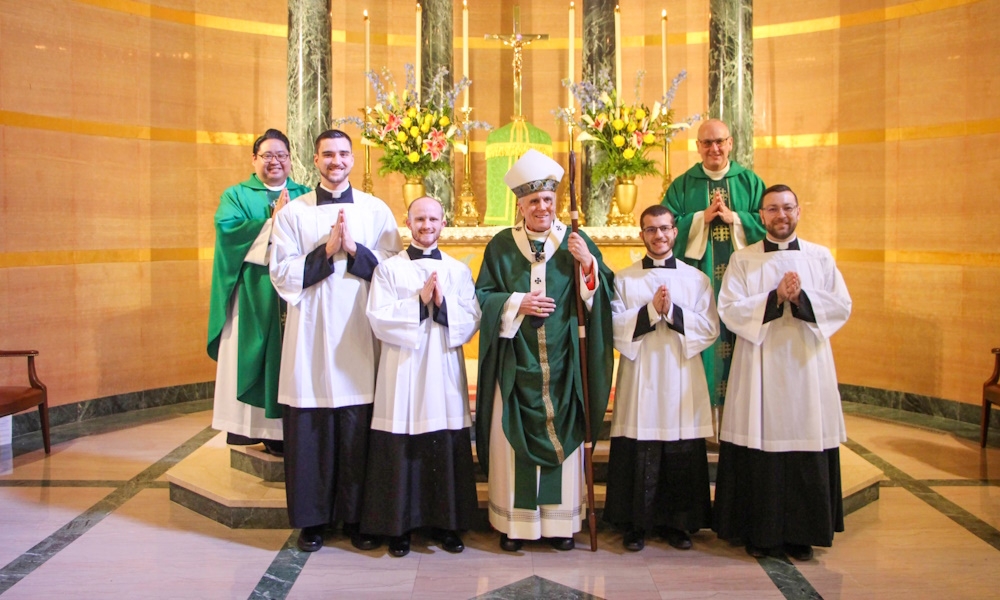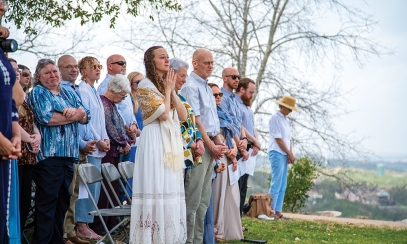
Acolytes are one step closer to ordination
During a man’s formation for the priesthood, the church entrusts him with two liturgical responsibilities – Lector and Acolyte -- before he is ordained. Lectors and Acolytes look a lot like the lectors and altar servers who serve at every parish, but for a seminarian who has been instituted in these ministries, each Mass he serves is a step closer to his ordination.
During a man’s formation for the priesthood, the church entrusts him with two liturgical responsibilities – Lector and Acolyte -- before he is ordained. Lectors and Acolytes look a lot like the lectors and altar servers who serve at every parish, but for a seminarian who has been instituted in these ministries, each Mass he serves is a step closer to his ordination.
When a man is made a Lector, the church sets him aside for the proclamation of the Scriptures in the liturgical assembly. He stands in a privileged place as a mediator of the Word of God, bringing the message of salvation to those who have not yet received it. With his help, men and women “come to know God our Father and his Son Christ, whom he sent, and so be able to reach eternal life,” according to the Rite of Institution of Lectors.
As an Acolyte, a man is entrusted with greater care of the Eucharist. He is to assist the deacon and minister to the priest at the service of the altar, to bring Holy Communion to the faithful — especially those who are sick — and to purify the sacred vessels after Mass. This is also a privileged place: the Acolyte is a member of the same Mystical Body of Christ whom he serves and to whom he brings the Eucharist.
In these two significant steps in his formation, there is a progressive movement from the pew to the ambo and to the altar that mirrors the steps of ordination to the diaconate and the priesthood. There is also a parallel between the institution rituals and the ordination rites. When a man is made a Lector, the bishop hands him a Bible and instructs him to meditate daily on the Word of God, receiving it obediently. When a man is ordained a deacon, the bishop hands him the Book of the Gospels. The bishop charges him to conform his life to it, to “believe what you read, teach what you believe, and practice what you teach.”
When a man is made an Acolyte, the bishop hands him a ciborium of hosts or a chalice of wine and instructs him to understand the deep meaning of what he does so that he may daily offer himself as a spiritual sacrifice. When a man is made a priest, the bishop hands him a chalice and paten for the celebration of the Mass and instructs him to “understand what you do, imitate what you celebrate, and conform your life to the mystery of the Lord's cross.”
As I exercise these ministries the church has entrusted to me, I can’t help but stand in awe of the weight of the mysteries I serve. In the proclamation of Scripture, my voice is put at the service of the Lord’s voice. In the ministry of the Eucharist, I bring the Eucharistic Lord to the people of God. At each liturgy, I enter ever deeper into the mystery of Christ the High Priest, who, one day, I will conform my life to at ordination.
Please continue to pray for more priests and for those studying to be priests.
Chris Haberberger is a seminarian of the Diocese of Austin. He is studying at St. Mary’s Seminary in Houston.



